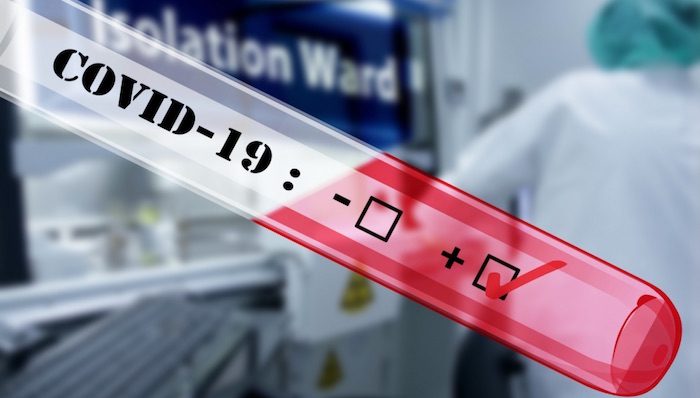
A positive COVID-19 PCR test result does not mean a person is sick, or infectious, with a pandemic virus. Also, “issues” with PCR tests are numerous, and PCR positive results are very unreliable when prevalence is low.
A PCR test stands for polymerase chain reaction test. This “nasal swab” diagnostic test analyzes a sample to see if it contains genetic material from the virus.
The following information about PCR testing was published in a Jan. 27 statement from Health Choice Vermont, a not-for-profit organization for the protection of “your fundamental human right to give your voluntary informed consent (or refusal) when undertaking any medical intervention, especially a vaccine,” according to the website mission statement.
1) A positive COVID-19 PCR test result does not mean a person is sick, or infectious, with a pandemic virus.
This is because PCR tests detect a nucleic acid sequence. That is all. A PCR test cannot distinguish between dead virus bits and “live” viruses capable of infection.
2) “Issues” with PCR tests are numerous. A partial list:
There can be large-scale test kit contamination, as both the US and the UK (and several African countries) discovered during the early phase of the pandemic.
There can be testing site or lab contamination, which has led to countless false positive results, school closures, nursing home quarantines, canceled sports events, and more.
The PCR test can react to other coronaviruses. According to lab examinations, this happens in about 1% to 3% of cases if only one target gene is tested, as is the case in many (but not all) labs and as the WHO itself has recommended to avoid ambiguous positive/negative test results.
“The PCR test can detect non-infectious virus fragments weeks after an active infection, or from an infection of a contact person, as the US CDC confirmed.
The PCR test can detect viable virus in quantities too small to be infectious. (For more information see Swiss Policy Research, “The Trouble With PCR Tests.”)
3) PCR positive results are very unreliable when prevalence is low.
This is well documented in the peer-reviewed, published literature and has been the direct experience of many infectious disease research and laboratory professionals.
Which is why it is so puzzling that here in Vermont PCR test results are being used to justify pretty much everything.
The high false discovery rate that results, when prevalence is low, from false positive rates typical of RT-PCR assays of RNA viruses raises questions about the usefulness of mass testing; and indicates that across a broad range of likely prevalences, positive test results are more likely to be wrong than are negative results, contrary to public health advice about SARS-CoV-2 testing.
There are myriad clinical and case management implications. Failure to appreciate the potential frequency of false positives and the consequent unreliability of positive test results across a range of scenarios could unnecessarily remove critical workers from service, expose uninfected individuals to greater risk of infection, delay or impede appropriate medical treatment, lead to inappropriate treatment, degrade patient care, waste personal protective equipment, waste human resources in unnecessary contact tracing, hinder the development of clinical improvements, and weaken clinical trials. Measures to raise awareness of false positives, reduce their frequency, and mitigate their effects should be considered.
Information source: Cohen, Andrew & Kessel, Bruce, (2020).



Interesting video you may find informative
https://www.youtube.com/watch?v=3mPIomjWwd4&feature=youtu.be